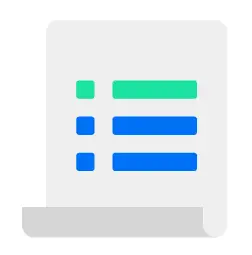Cardiology Medical Billing Services
Revitalize Your Financial Health with Cardiology Billing Services
See improvement in your organization’s billing performance within a month
Improvement Guaranteed

Are the complexities of cardiology billing giving you heart palpitations?
Cardiologists in General Cardiology, Interventional Cardiology, Cardio-Thoracic Surgery, Electrophysiologist, Nuclear Cardiology, and Transplant Cardiology, providing life-saving interventions, often find it challenging to keep up with evolving coding guidelines. Staying current consumes valuable time, detracting from patient care. Training and retaining skilled billing staff can strain practice finances, and staff turnover disrupts workflow, potentially leading to revenue loss.
This is where a specialized cardiology billing company becomes essential. Managing procedures like PPM cardiology (Permanent Pacemaker) involves intricate coding and billing that must be handled with precision to ensure proper reimbursement. Whether you’re dealing with complex coding or claim denials, having a cardiology billing company ensures that your billing operations run smoothly and efficiently.
The need for specialized billing support is evident in ensuring financial health and quality patient care in cardiology. Here are the most common coding and billing challenges facing cardiologists today.
Constant Advancement and Complex Codes
With the frequent updates in cardiology coding, having a reliable cardiology CPT code cheat sheet at your disposal is crucial for quick and accurate billing.
Upcoding and Under-coding Risks
These risks are particularly significant in procedures like PPM cardio, where accuracy is key to maximizing reimbursement and minimizing audits.
Time Constraints for Physicians
Physicians are often pressed for time, and managing billing on top of patient care can be overwhelming.
Claim Denials Due to Coding Errors
Errors in coding can lead to significant revenue loss. Proper management of procedures like permanent pacemaker implantation coding is essential to reducing these errors.
Reach Your Revenue Targets With Neolytix’s Cardiology Billing Services
After 12+ years of providing cardiology medical billing services nationwide, we’re familiar with the financial challenges that cardiology practices encounter in billing and revenue cycle management. Neolytix’s dedicated team of experts specializes in crafting tailored solutions designed to assist your organization in surmounting these challenges and optimizing your financial performance.

Revenue Leakage Analysis
Our comprehensive revenue leakage analysis involves a meticulous review of your billing processes, enabling us to identify & address potential sources of revenue loss.

Credentialing and Network Management
Help organizations maintain proper credentialing for their providers and ensure that they are in-network with relevant insurance companies. This can prevent denials due to provider issues.

Improvement to Clean Claims
We focus on enhancing your organization's revenue through meticulous analysis and continuous improvement of claims submissions and denial analysis.

Follow-Ups & Denial Appeals
Develop efficient and effective appeal processes to challenge denials when they occur.

Regular Compliance & Coding Audits
Conduct routine compliance audits to identify potential issues or areas of improvement. This proactive approach can help catch problems before they lead to denials or legal issues.

Prior Authorization Management
Assist in managing prior authorizations to ensure that required authorizations are obtained before services are rendered.
Our Best Practices Pillars For Your Cardiology Billing
With over 12 years of invaluable experience in the field, Neolytix brings a wealth of expertise to the table, ensuring that our dedicated teams adeptly apply the best cardiology billing practices to optimize your revenue cycle management. Our commitment to excellence is reflected in the following core strategies:
Coding for Diagnosis Emphasis:
Our billing experts prioritize accurate diagnosis coding, enabling healthcare providers to capture the full clinical picture and secure proper reimbursement.
Frequent Chart Audits:
Conduct routine audits of cardiology charts to maintain accuracy, compliance, and identify areas for improvement in coding and documentation practices.
Combination Coding Specialization:
To comprehensively represent complex cardiology procedures, facilitating efficient claims processing and reducing denials.
Keeping Up with Compliance:
Neolytix stays vigilant in adhering to evolving healthcare regulations, ensuring that your cardiology billing remains in compliance with industry standards.
Cleanse Your Cashflow-Arteries With Our Coding Expertise
Denials of claims may stem from diverse causes, which could include coding inaccuracies, documentation challenges, etc. For cardiology practices, these issues are often exacerbated by the complexity of coding cardiology procedures. Partnering with experienced cardiology medical billing companies can help mitigate these risks and streamline your billing process.
Although the specific codes prone to denial can differ depending on payer policies and individual circumstances, here are certain CPT (Current Procedural Terminology) and ICD (International Classification of Diseases) codes that might be particularly susceptible to denials. For example, CPT codes 93306, which cover comprehensive echocardiograms, require precise documentation and coding to avoid rejection.
Common CPT Codes for Cardiologists
92941-92944 (Percutaneous Coronary Interventions)
Denials may occur if there is insufficient documentation to support the complexity of the intervention or if the codes are not used correctly.
92950 (Cardiopulmonary Resuscitation)
Improper use or lack of documentation supporting the need for cardiopulmonary resuscitation services may lead to denials.
93000 Series (Electrocardiography)
Inaccurate coding or lack of medical necessity documentation for electrocardiography services may lead to denials.
93010 (Routine EKG)
Claims may be denied if routine electrocardiograms are billed without clear medical necessity.
93306-93308 (Echocardiography)
Issues may arise if the documentation doesn't justify the medical necessity of the echocardiography services performed.
Common ICD 10 Codes for Cardiologists
I21.x (Acute Myocardial Infarction)
Denials may occur if the documentation does not clearly indicate an acute myocardial infarction or if the coding is inaccurate.
I25.x (Chronic Ischemic Heart Disease)
Issues may arise if there is a lack of documentation supporting the chronic nature of ischemic heart disease.
I48.x (Atrial Fibrillation and Atrial Flutter)
Denials may occur if the documentation does not clearly specify atrial fibrillation or flutter.
I50.x (Heart Failure)
Documentation may be insufficient to support the severity of heart failure, leading to denials.
I70.x (Atherosclerosis)
Lack of documentation supporting the presence and severity of atherosclerosis may lead to denials.

Benefits Of Working With Neolytix Billing Services
Neolytix provides services around the clock to healthcare organizations nationwide. Each team member in our billing team receives ongoing training and is upskilled to harness new technology and remain compliant with best practices and changes in regulation.
The upskilling happens behind the scenes at no cost to your organization and won’t affect your services for medical billing, coding, and collections operations.
- Uninterrupted Support: Constant availability to ensure continuous support for your healthcare organization.
- Enhanced Accuracy: Improved accuracy in claims submissions and reduced billing errors & monitoring of coding changes and amendments.
- Regulatory Compliance: Stay updated with ever-changing healthcare regulations. We ensure that your billing practices align with the latest compliance standards.
- Expertise in Cardiologist Billing: Cardiology procedures often involve intricate coding requirements. Our experts are well-versed in the latest coding guidelines and ensure accurate submissions for maximum reimbursement.
- Elevated Patient Experience: Free up your time by outsourcing billing and administrative tasks. Focus on patient care, and leave the billing to us.
CUSTOMER TESTIMONIALS
Listen to what our clients have to say
Partner with Neolytix Today
Don’t let billing challenges hold you back. Partner with us and streamline your cardiology practice’s financial operations.

100% Probability of Revenue Improvement

99% Claims Acceptance Rate
12+ Years of Experience with Cardiologist

HIPAA Complaince
Defibrillate Your Coding & Billing Operations Now
Choose our specialized billing services for seamless revenue management. Take the first step – contact us for a customized quote.

Request A Free Quote
"*" indicates required fields
Frequently Ask Questions
Billing codes in cardiology vary depending on the procedure or test being performed. For example, the CPT code 93306 is used for a comprehensive echocardiogram, which includes 2D, M-mode recording, and Doppler. Understanding and correctly applying cardiology billing codes is crucial for accurate reimbursement. For cardiology practices, it's essential to stay updated on cardiology billing guidelines to avoid claim denials.
Billing for an Electrocardiogram (ECG) typically involves using the CPT code 93000. This code covers the recording of an ECG at 12 leads with interpretation and report. Proper documentation is key to ensuring compliance with cardiology medical billing standards. Implementing cardiology ehr billers in your practice can streamline this process, making it easier to follow cardiology billing guidelines.
Five common cardiology billing codes include:
- CPT code 93000 - Routine ECG with interpretation.
- CPT code 93306 - Comprehensive echocardiogram, often referred to as 93306 medical code.
- CPT code 93015 - CPT code for cardiac stress test, which includes supervision, interpretation, and report.
- CPT code 93458 - Catheter placement in coronary arteries for angiography.
- CPT code 92928 - Percutaneous coronary intervention (stent placement).
These cardiac testing CPT codes are frequently used in cardiology medical billing services and should be part of any cardiology billing cheat sheet.
The cost of an ECG can vary based on location, provider, and whether it’s done in a hospital or an outpatient setting. On average, an ECG may cost between $50 and $200. Understanding the CPT 93000 description and correctly applying the cpt code 93000 can impact reimbursement rates. Accurate cardiology billing is essential to ensure that your practice receives fair compensation for these services.
CPT code billing refers to the use of Current Procedural Terminology (CPT) codes to describe medical, surgical, and diagnostic services. In cardiology medical billing, these codes are used to communicate with payers about the procedures performed. For example, CPT 93306 is used for billing a comprehensive echocardiogram. Mastering medical billing basics is crucial for anyone involved in cardiology billing services.
ICD in medical billing stands for the International Classification of Diseases. These codes are used to classify and code all diagnoses, symptoms, and procedures. For instance, there are specific ICD 10 codes that cover 93306, which is used in conjunction with CPT code 93306 for billing an echocardiogram. Accurate use of ICD codes is vital in cardiology revenue cycle management to ensure that all services are appropriately billed and reimbursed.
As mentioned earlier, the cost of an ECG can range between $50 and $200. The variation in cost can depend on the healthcare provider and geographic location. It’s important to use the correct CPT code 93000 and understand the cpt 93000 description to ensure accurate billing. Echo billing solutions like those offered by Neolytix can help cardiology practices maximize reimbursement for these tests.
Starting your own medical billing service requires a thorough understanding of medical billing basics, including the use of cardiology billing codes, cardiac testing cpt codes, and ICD coding. You'll need to become proficient in medical billing tips and tricks to handle complex cases like cardiology billing. Partnering with experts who provide cardiology billing services can also help you navigate the intricacies of cardiology revenue cycle management.
Code 93000 refers to a routine Electrocardiogram (ECG) that includes a 12-lead ECG tracing with interpretation and report. This is one of the fundamental cardiology CPT codes used in billing for cardiac procedures. Understanding the 93000 CPT code reimbursement process is crucial for ensuring that your practice receives accurate compensation. Many cardiology medical billing companies and third-party medical billing companies rely on accurate documentation and billing practices to minimize denials.
The full form of AAPC is the American Academy of Professional Coders. AAPC offers certification and education for medical coders, which is particularly important for those specializing in cardiology coding and coding cardiology procedures. For professionals working in cardiology practice management, AAPC certification can be a valuable asset, especially when dealing with complex cardiology CPT codes like CPT codes 93306.
Medical billing can be stressful, especially in specialized fields like cardiology. The complexity of cardiology coding and the need to stay updated on ever-changing billing regulations contribute to this stress. However, partnering with experienced cardiology billing companies or third-party medical billing companies can alleviate some of the pressure. These organizations provide essential billing solutions that ensure accurate and timely submissions, helping to reduce stress for healthcare providers.
Yes, medical billing is in high demand, particularly in specialized areas like cardiology. The need for accurate billing and coding, especially in cardiology practice management, has led to a growing demand for skilled professionals. Many cardiology medical billing companies offer services tailored to specific specialties, including cardiology PPM (Practice Performance Management), ensuring that practices can focus on patient care while the billing is managed efficiently.
The 99213 CPT code is used for an office or other outpatient visit for the evaluation and management of an established patient. It’s a commonly used code in cardiology practice management, especially for routine follow-up visits. This code is part of the broader category of cardiology CPT codes that practices need to be familiar with to ensure accurate billing. A cardiology CPT code cheat sheet can be helpful for quickly referencing codes like 99213 during the billing process.
Billing for an echocardiogram typically involves using CPT codes 93306, which covers a complete echocardiographic study including 2D imaging, M-mode recording, and Doppler. Correctly billing for an echocardiogram requires detailed documentation and an understanding of coding cardiology procedures. Utilizing cardiology PPM services or cardiology EHR billing services can streamline the process, ensuring that your practice follows the best practices for echocardiogram billing.
The 59 modifier is used in medical billing to indicate that a procedure or service was distinct or independent from other services performed on the same day. This is particularly important in cardiology coding where multiple procedures might be performed during a single visit. Understanding how to apply the 59 modifier correctly can help avoid claim denials and ensure accurate 93000 CPT code reimbursement. Cardiology billing companies often provide training on modifiers and other billing practices to help practices optimize their revenue cycle.